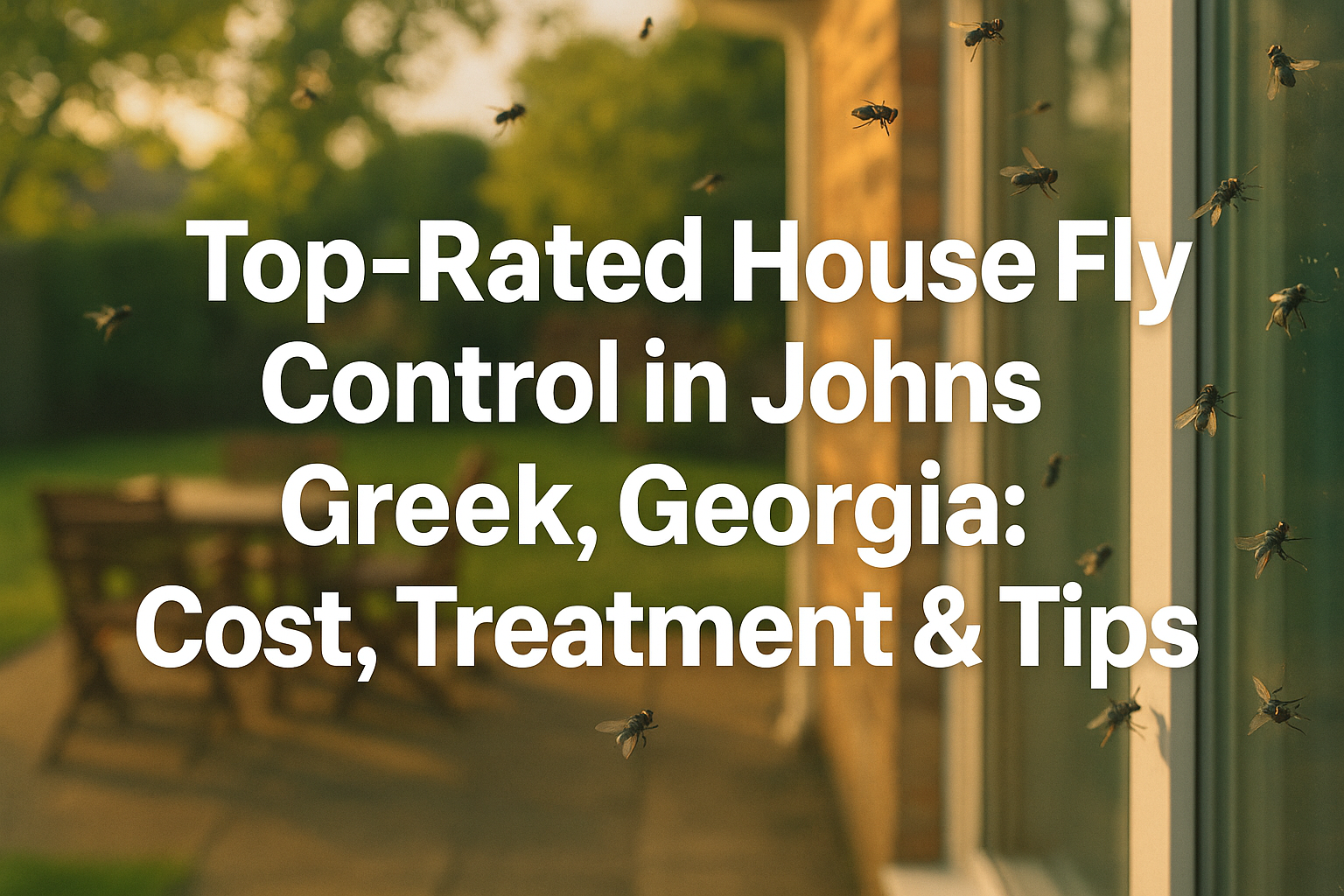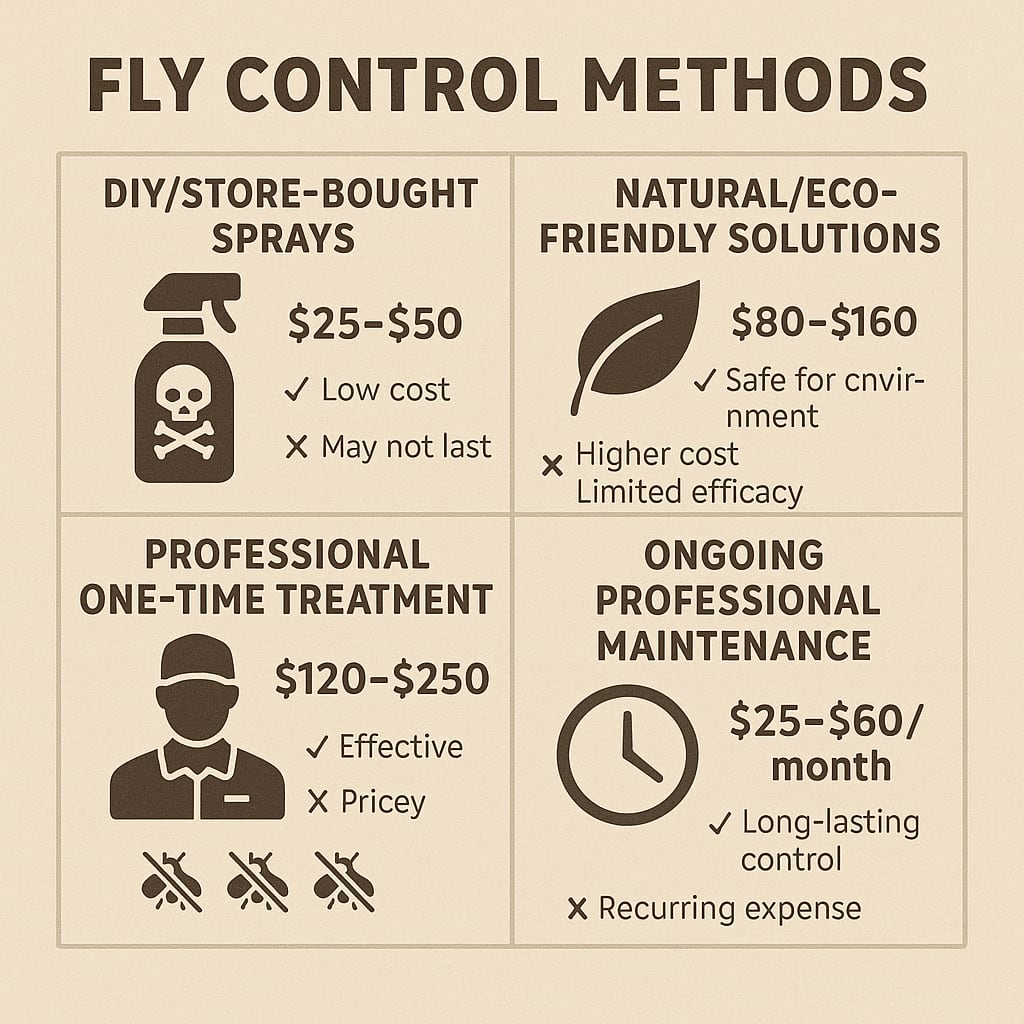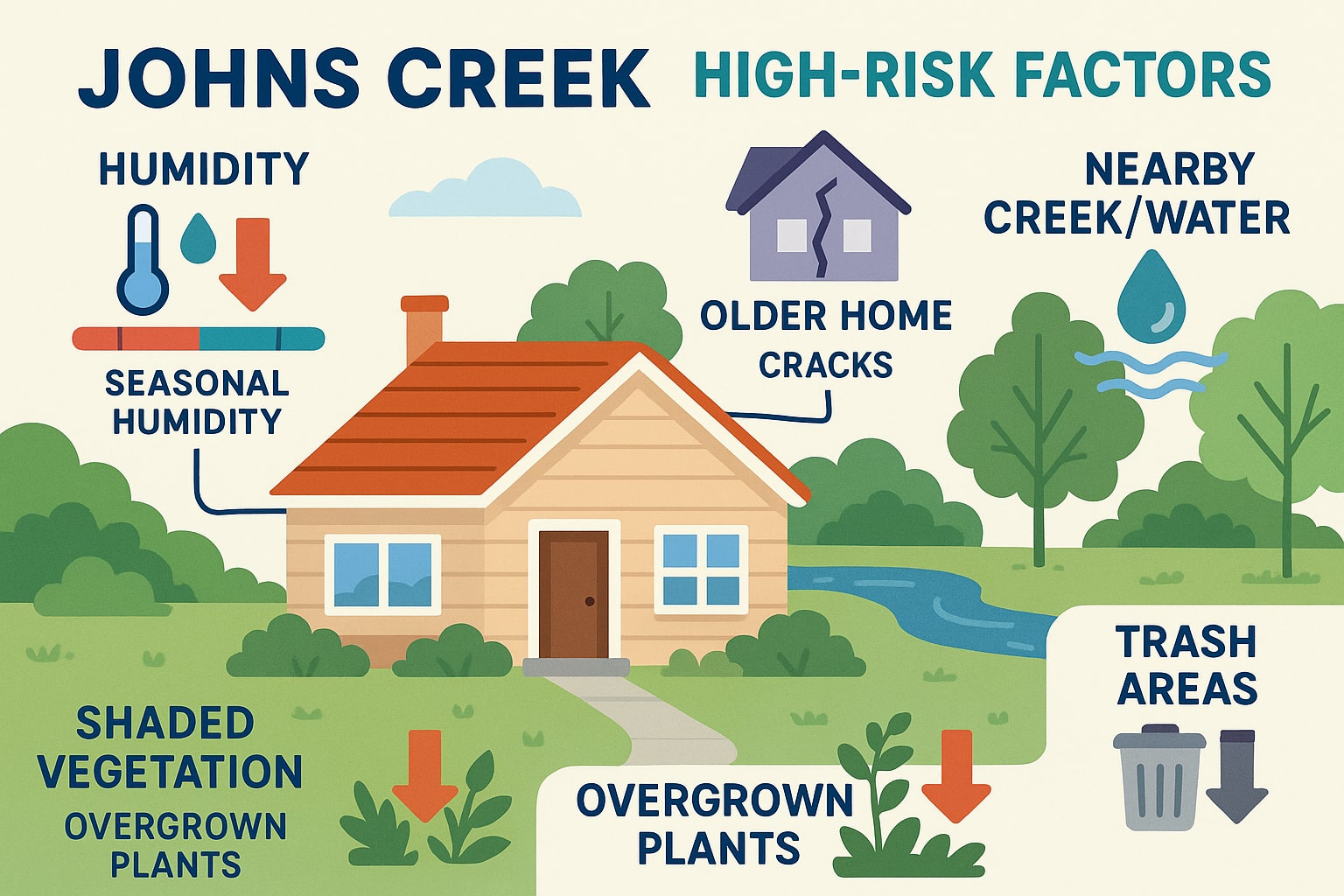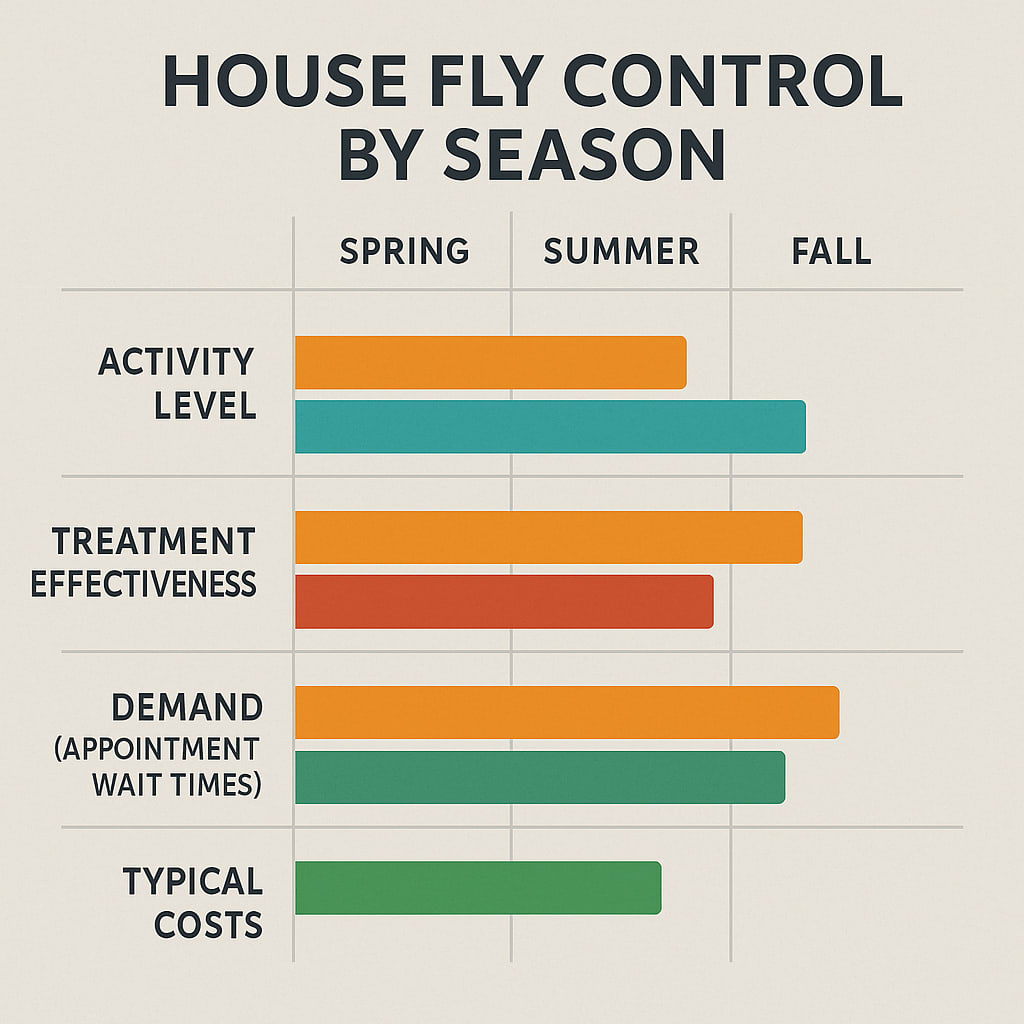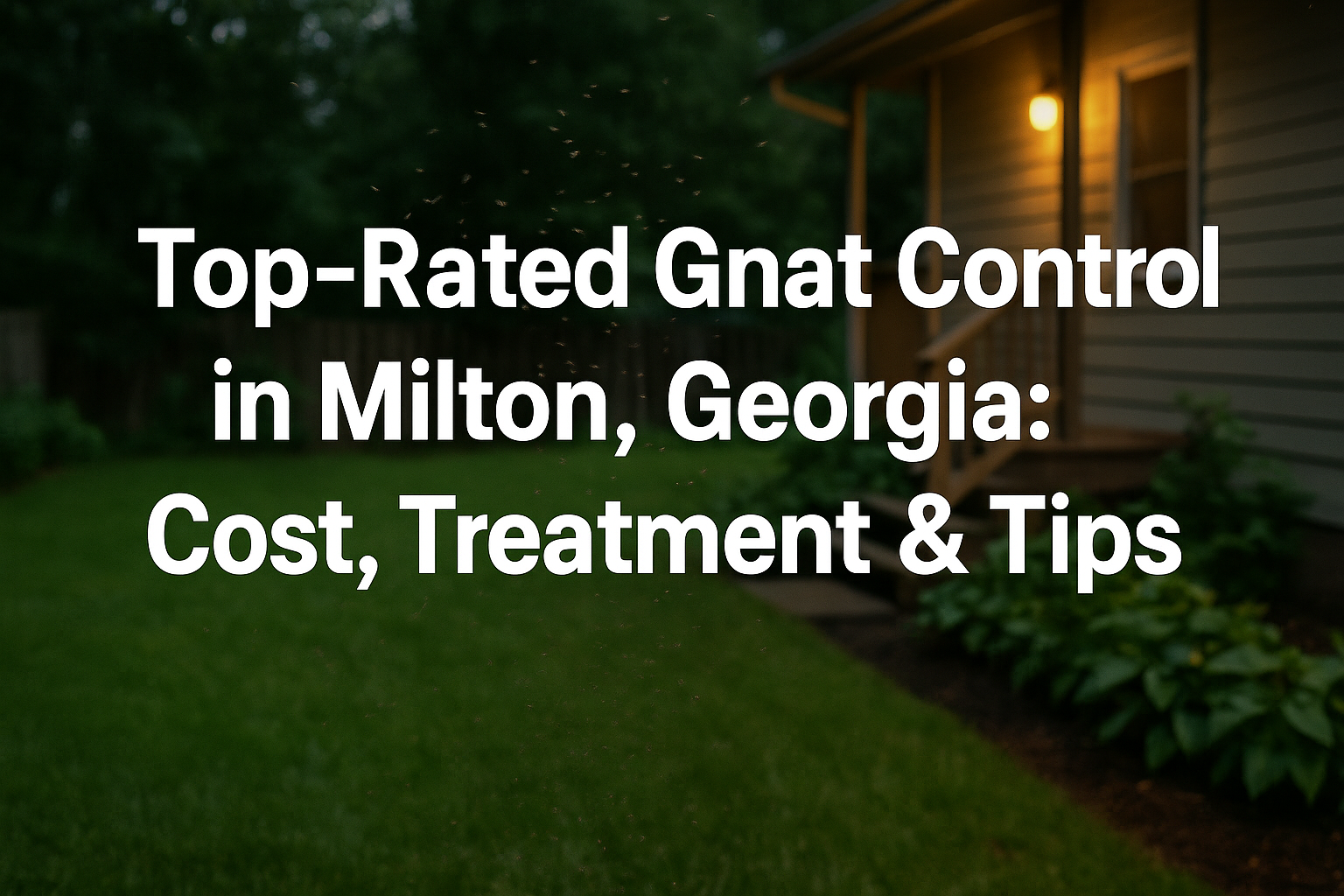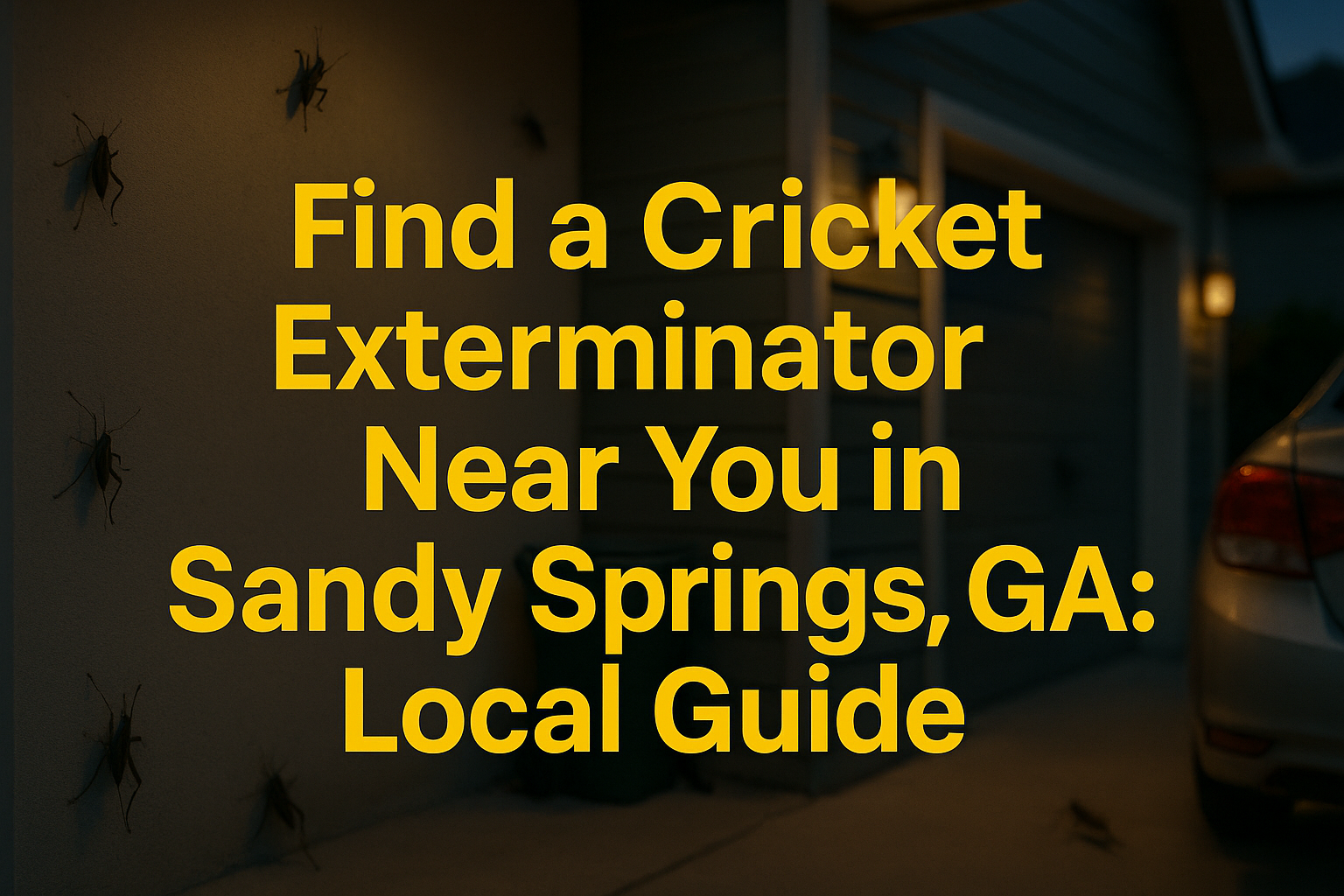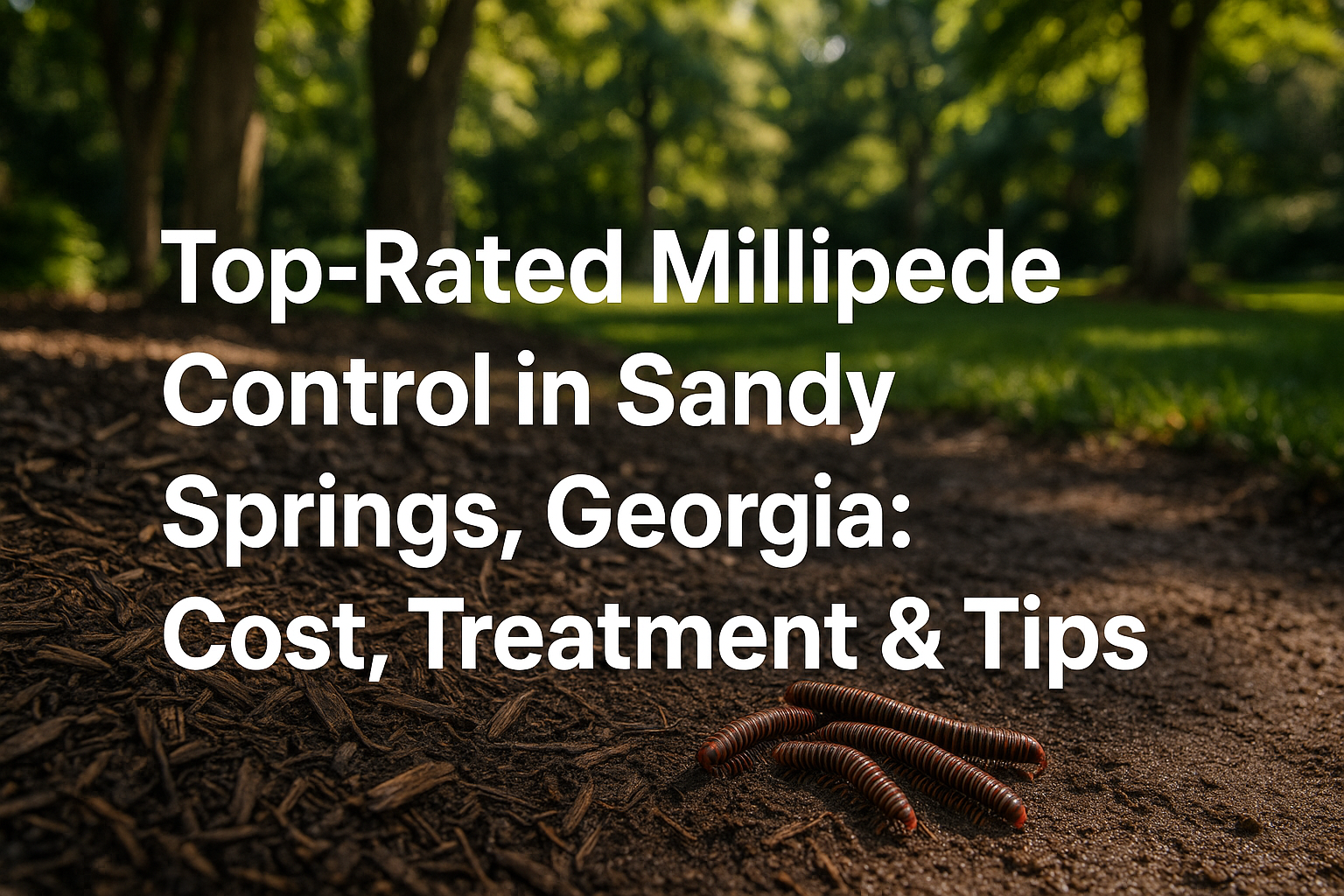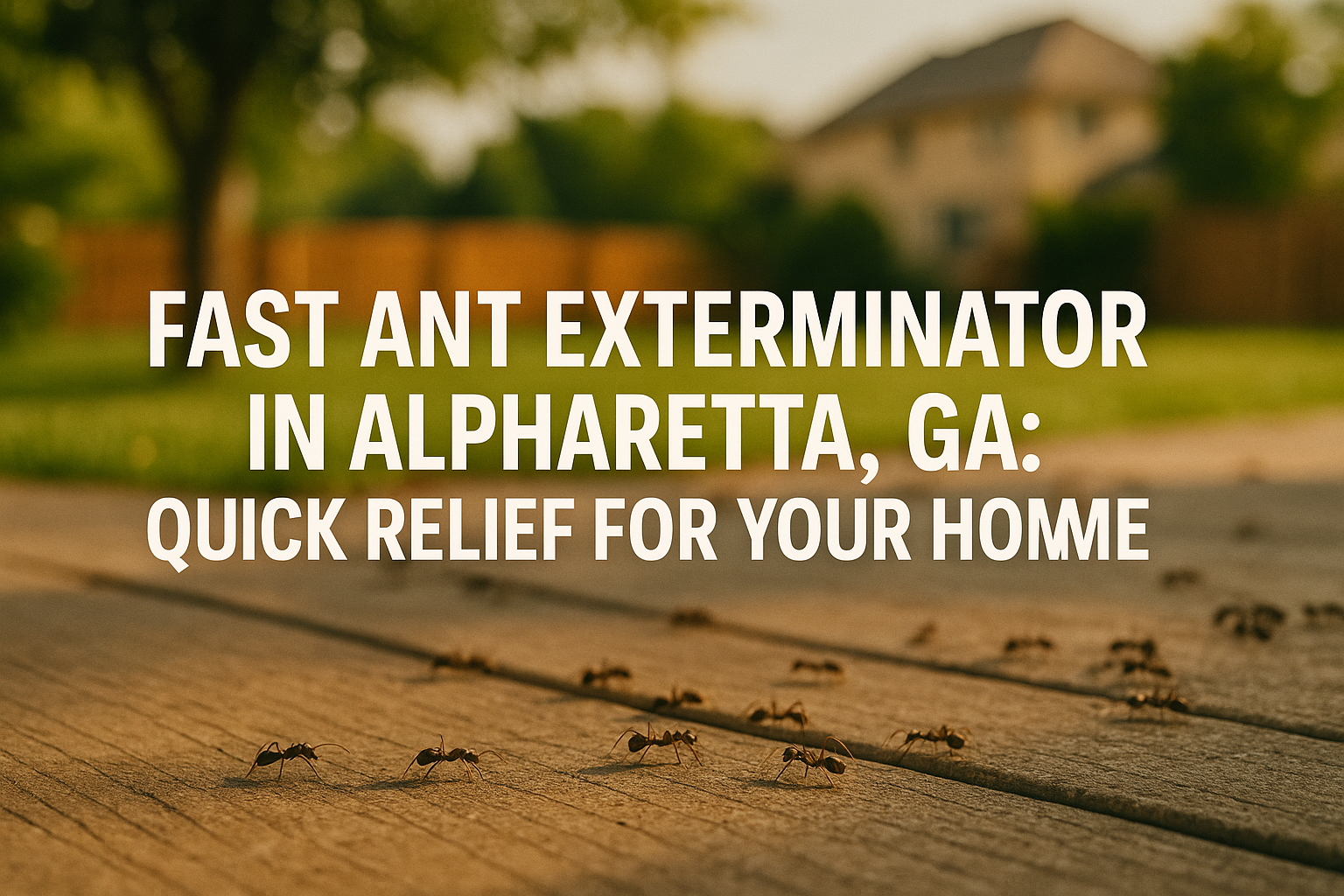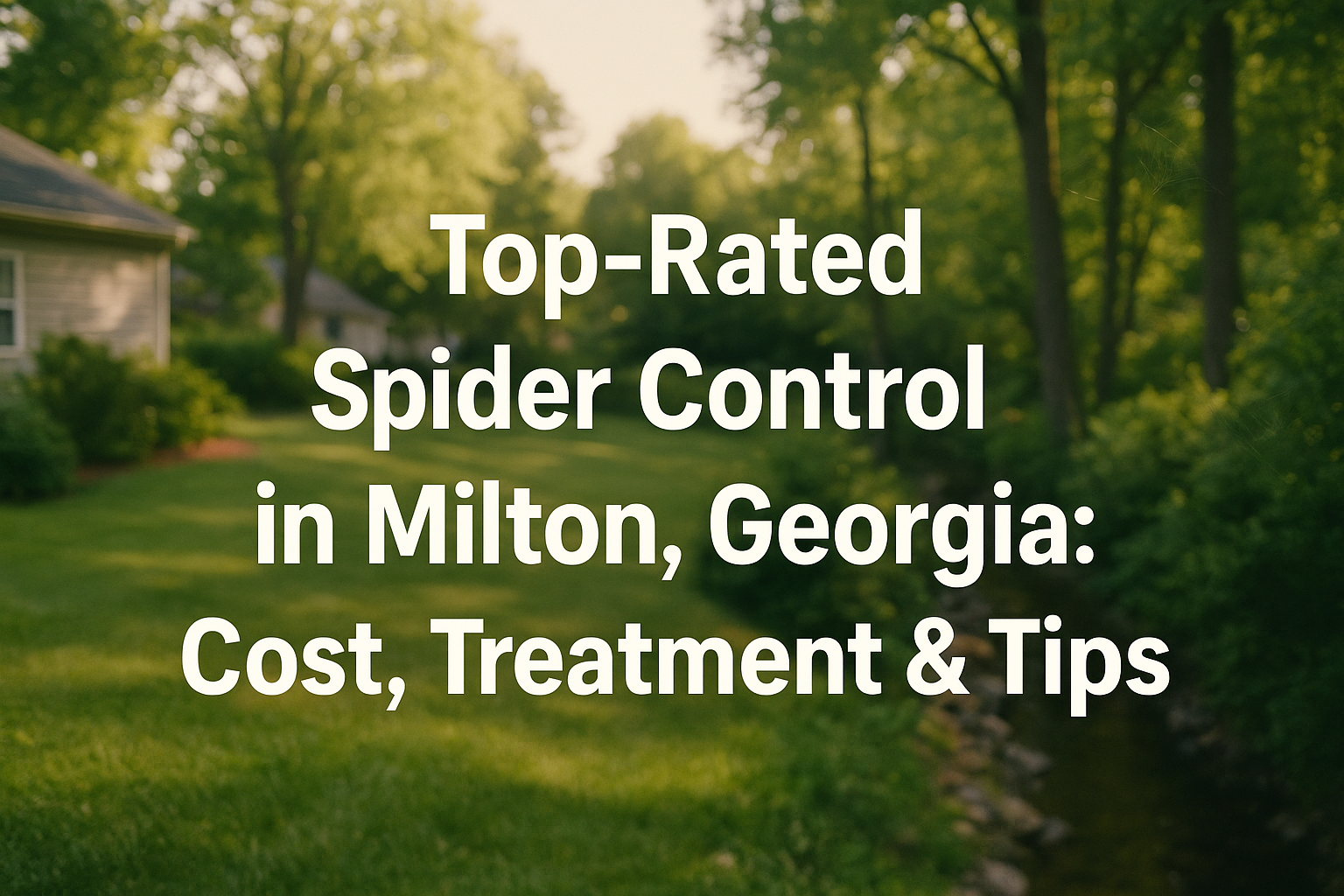House Flies in Johns Creek: Why You Should Act Fast
If you live or run a business in Johns Creek, you know that house fly control is about more than just tackling a summer annoyance. These little pests can turn any kitchen, restaurant patio, or living room into a battleground if they get out of hand. Flies aren’t just a nuisance—they carry bacteria like E. coli and Salmonella, and the last thing you want is for your family or customers to get sick from an avoidable infestation.
Johns Creek’s warm weather and busy neighborhoods like Newtown, Medlock Bridge, and Abberley Towneship make it a hotspot for fly problems. When the conditions are right, a couple of flies can quickly become dozens, zipping around your space, landing on food, and making everyone uncomfortable. It doesn’t take long before you’re dealing with a full-blown infestation that can feel impossible to stop on your own.
Wondering about the cost of house fly control Johns Creek? Most homeowners and business owners here can expect to pay somewhere between $120 and $250 for the first visit from a professional pest control company. The price bumps up or down depending on how severe things are and the size of your property. A lot of folks find that long-term service plans help keep flies from coming back—and often save you money and hassle in the long run.
Whether you’re weighing DIY fixes or want to hand it off to the pros, you deserve real answers so you can make a smart call for your home or business. Keep reading as we break down the good and bad of tackling flies on your own versus calling a local expert, what really impacts the price, how to prevent future outbreaks, and which treatment options work best here in Johns Creek. Check out the sections below to compare your choices and protect your space with confidence.
What Drives the Cost of House Fly Control in Johns Creek?
If you’ve ever wondered why house fly control for your property in Johns Creek can vary so much in price, you’re not alone. There’s no one-size-fits-all cost, and a few key factors come into play—so let’s break them down in plain English so you know what to expect before calling in the pros.
- Property Size: The bigger the space, the more work and materials it takes. Treating a cozy family home in St. Ives will usually cost less than tackling a sprawling restaurant or multi-unit property near Johns Creek Walk. Larger properties might mean more fly hotspots to address, and that extra time and product will show up on your bill.
- Severity of the Infestation: A stray house fly or two is a pretty easy fix. But if your kitchen, garage, or business has flies buzzing around every corner, you’re looking at a more involved—and pricier—treatment plan. Heavy, multi-room or recurring infestations can need several visits or specialized solutions.
- Treatment Options: Not all house fly control is the same. Standard chemical treatments are effective and usually cost less, but if you’re looking for eco-friendly solutions, they may run a bit higher due to the specialized materials and techniques involved. Some folks opt for integrated pest management (IPM), which combines prevention and a variety of treatments for long-term relief.
- Type of Property: Homes tucked close to wooded areas or local creeks can be more prone to flies thanks to extra moisture and shade. On the business side, restaurants and food service properties have stricter requirements and bigger risks, meaning more comprehensive—and more expensive—fly control plans. Any place that stores, preps, or serves food will see higher costs due to the stricter standards for safety and sanitation.
If you’re looking for numbers, here’s what you can expect: small, localized house fly control services usually start around $120 for a single visit. But if you’re battling a serious outbreak or need treatment across a large home or commercial space, the cost generally ranges from $180–$250. These estimates can change, especially if you want specialty treatments or your space needs multiple visits. For folks who want to stay ahead of fly problems—say, business owners or homeowners who’ve had recurring infestations—routine prevention plans often run $25–$60 a month. In the long run, consistent house fly control plans can actually keep expenses down and make sure you’re not surprised by a sudden fly invasion in the future.
Bottom line? No two properties are quite the same when it comes to house fly control in Johns Creek, and local pest pros will always tailor their pricing to your exact situation. Understanding what goes into the cost of house fly control means you can make smart decisions and keep your space fly-free all year round.
What Drives the Cost of House Fly Control in Johns Creek?
If you’ve ever wondered why house fly control in Johns Creek can vary so much in price, you’re not alone. Whether it’s for your home or business property, there’s no one-size-fits-all cost, and a few key factors come into play—so let’s break them down in plain English so you know what to expect before calling in the pros.
- Property Size: The bigger the space, the more work and materials it takes. Treating a cozy family home in St. Ives will usually cost less than tackling a sprawling restaurant or multi-unit property near Johns Creek Walk. Larger properties might mean more fly hotspots to address, and that extra time and product will show up on your bill.
- Severity of the Infestation: A stray house fly or two is a pretty easy fix. But if your kitchen, garage, or business has flies buzzing around every corner, you’re looking at a more involved—and pricier—treatment plan. Heavy, multi-room or recurring infestations can need several visits or specialized solutions.
- Treatment Options: Not all house fly control methods are the same. Standard chemical treatments are effective and usually cost less, but if you’re looking for eco-friendly solutions, they may run a bit higher due to the specialized materials and techniques involved. Some folks opt for integrated pest management (IPM), which combines prevention and a variety of treatments for long-term relief.
- Type of Property: Homes tucked close to wooded areas or local creeks can be more prone to flies thanks to extra moisture and shade. On the business side, restaurants and food service properties have stricter requirements and bigger risks, meaning more comprehensive—and more expensive—fly control plans. Any place that stores, preps, or serves food will see higher costs due to the stricter standards for safety and sanitation.
If you’re looking for numbers, here’s what you can expect: small, localized fly issues usually start around $120 for a single service. But if you’re battling a serious outbreak, or need service across a large home or commercial space, the cost generally ranges from $180–$250. These estimates can change, especially if you want specialty treatments or your space needs multiple visits. For folks who want to stay ahead of fly problems—say, business owners or homeowners who’ve had recurring infestations—routine prevention plans often run $25–$60 a month. In the long run, prevention plans can actually keep expenses down and make sure you’re not surprised by a sudden fly invasion in the future.
Bottom line? No two properties are quite the same when it comes to house fly control, and local pest pros in Johns Creek will always tailor their pricing to your exact situation. Understanding what goes into the cost means you can make smart decisions and keep your space fly-free all year round.
How Johns Creek Homes and Weather Turn Flies Into a Season-Long Headache
Living in Johns Creek, you know the weather keeps things lively. With our famously warm, humid summers and those just-cool-enough winters, flies never really go away—they just stick around, waiting for their chance to get inside. Some neighborhoods have it tougher than others, especially spots like Rivermont. The combination of big trees, creeks running in the background, and outdoor trash cans pretty much rolls out the red carpet for flies year-round.
If your house is a bit older or has seen better days on the sealing front, you’re an even bigger target. Any small gaps, cracks, or leaky seals give flies an easy invite—especially when the weather shifts fast or after a heavy summer storm pushes them to find dry ground indoors. On the flip side, many modern Johns Creek homes are built tighter, with better windows and fewer entry points, so you might get off a little easier when it comes to treatments and costs.
But it’s not just the age or style of your home that matters. Got a kitchen near the back or garage entrance? Flies will find it fast! Properties with open layouts or sliding doors that get a lot of use can have more fly pressure—especially after backyard barbecues or when guests forget to shut the door behind them.
Little details make a difference, too. Brick exteriors tend to seal up better against pests compared to old siding, and the kind of landscaping you have—mulch beds, thick shrubs, or standing water—can boost your fly count if you’re not careful. All these environmental and structural quirks play into how a technician attacks your fly problem and what kind of treatment (and price) you can expect.
When storms roll in or we hit peak summer, demand for fly treatments can spike across the city. Those are the times you might see pricing surge a bit, especially if you need emergency help. In the end, whether you’re in a new build or rocking an older home in a wooded spot, understanding how these local conditions shape the battle against flies is your first step toward a fly-free season.
Smart Ways to Keep Flies Out and Save Money in Johns Creek
Nobody wants to swap stories about battling flies in the kitchen or backyard. The good news? With a few easy habits, you can cut down on both flies and those unexpected pest control bills. Here’s what works best for folks right here in Johns Creek:
- Clean up fast: Wipe up spills the moment they happen, especially if it’s anything sweet or greasy. A crumb today is a fly invitation tomorrow.
- Lock up your trash: Always put garbage and food scraps in bins with tight-fitting lids. If you compost, make sure it’s sealed and well away from doors or windows.
- Don’t forget pet waste: Scoop the yard regularly. Flies love old pet droppings, so don’t let them turn your lawn into a buffet.
- Seal the cracks: Walk around your home and check for gaps in window screens, loose weather stripping, or small holes in foundations. Patch them up to leave flies on the outside looking in.
- No standing water: Flies crave moisture, so fix leaky pipes and avoid letting water pool in plant saucers, gutters, or kids’ toys.
- Tidy the landscape: Keep shrubs trimmed and maintain a clear, neat border near the foundation, so flies don’t get comfy close to your home.
Want to stay one step ahead? Scheduling a seasonal checkup with a local pro—especially before those warm spring and summer months—can help spot any problem areas early. That way, you fix small issues before they turn into swarm-level headaches.
By staying proactive with these habits, you’ll enjoy a home that’s less attractive to flies and more comfortable for your family. Plus, you’ll save money by cutting down on the number of emergency service calls. A little prevention always costs less than a full-on pest battle!
Know When to Act for Fly-Free Results in Johns Creek
Here in Johns Creek, anyone who’s tangled with flies knows timing is everything. These pests don’t give you much warning—they show up in droves when the weather turns warm, especially after a good rainstorm or a muggy heat wave. Late spring flips the switch: flies multiply quickly, and by summer, they’re staking claims on patios, kitchens, and storefronts across neighborhoods like The Falls of Autry Mill or DoubleGate. If you’ve ever tried to host a BBQ in July, you know what I’m talking about.
Summer is naturally the heaviest season—not just for fly activity, but also for appointments and, sometimes, pricing. It’s when folks call in a panic after a sudden swarm inside or out. Emergency rushes in the hot months can mean longer wait times and less flexible scheduling, especially after storms or during a humid streak.
If you’re all about getting ahead, aim for a spring strategy. Booking your fly control early, before temperatures soar, nets you the best availability and often more budget-friendly rates. Pest pros can set up preventive treatments that stop flies before things get out of hand, locking in long-lasting protection. Early fall brings another sweet spot: as activity begins tapering off, you’ll find more open slots and still plenty of time to keep late-blooming infestations at bay.
And if you’re a planner, let’s talk winter. Most folks don’t realize flies are at their weakest in the coldest months. This is prime time to hunt down those little gaps, cracks, and sneaky entryways that flies (and other pests) might use when spring rolls back around. Sealing up now means less hassle later, and you can usually schedule service whenever it suits you best.
Bottom line? Tackling flies at the right time is the best way to stretch your pest control investment. Whether you’re in the heart of DoubleGate or right along Medlock Bridge, a little planning goes a long way to keeping your property fly-free all year.
Take Back Your Space from Flies—Get a Free Quote Today!
Don’t let stubborn house flies turn your Johns Creek home or business into their hangout. Anthem Pest Control understands the local fly problems and knows exactly how to handle them, no matter the size of your property. Our team delivers reliable, affordable fly control that’s tailored to your needs, so you can relax and breathe easy again.
It’s simple: Schedule your free, no-obligation assessment and we’ll check out your property, explain the best solutions, and give you honest, upfront pricing—no hidden fees, just results. Ready to get started? Give us a call at 877-3718-5196 or visit https://anthempest.com to connect with our friendly Johns Creek team.
Taking fast action means a healthier, happier home or business for you and the people around you. Still want more tips or insights into beating pests in Johns Creek? Check out our trusted local blog at https://anthempest.com/blog. Make today the day you show flies the door!
House Fly Control: Your Questions Answered
If you’re dealing with flies in Johns Creek, you’ve probably got questions. Below, you’ll find answers to the things we hear most from folks in local neighborhoods—from how fast we can solve your fly problem to keeping your family safe.
How quickly can a professional get rid of house flies?
Most of the time, a proper fly treatment knocks things out in maybe a day or two—three at most, if it’s a larger infestation. Sometimes, if things are stubborn or recurring, our team may recommend a follow-up just to make sure everything’s handled right.
Are eco-friendly fly control methods as effective?
We love it when people ask about this. The good news: modern, eco-friendly options can be just as effective for mild to moderate cases, especially when you pair them up with smart prevention (like keeping things clean and sealing up entry points).
What do I need to do to prepare for house fly treatment?
- Clear away or cover exposed food.
- Tidy up trash and take care of recycling bins.
- Make sure we can get into kitchens, near pet food, and anywhere flies seem busiest.
This helps us move quickly and cover all the bases during your visit.
Can I keep flies away myself?
Absolutely! Keeping garbage lids tight, fixing window screens, and patching up cracks or leaks makes a real difference. Little steps like these help reduce the odds of flies coming back between services.
Is fly control safe for my kids and pets?
We only use products and methods that are proven safe for your family—kids and animals included. Eco-friendly treatments are especially gentle and give you peace of mind.
How often should I schedule preventive treatments?
For homes in high-risk spots, we recommend quarterly checks. But most Johns Creek houses do great with twice-a-year preventative service. Consistency is key for keeping pests away.
Is there a health risk if I don’t act fast?
Don’t wait if you’re seeing flies—these guys spread bacteria and germs onto food and surfaces, putting your health at risk. Quick, professional action keeps your home clean and safe.
Are there neighborhoods in Johns Creek where flies are a bigger problem?
Yes—areas near creeks, wooded lots, or older neighborhoods like Riverwood or Medlock Bridge tend to see more issues with flies, especially in warmer months. If you live nearby, a little extra prevention goes a long way.
Got more questions about house fly control in Johns Creek? Our team is just a call away and happy to help your family feel comfortable and pest-free.

